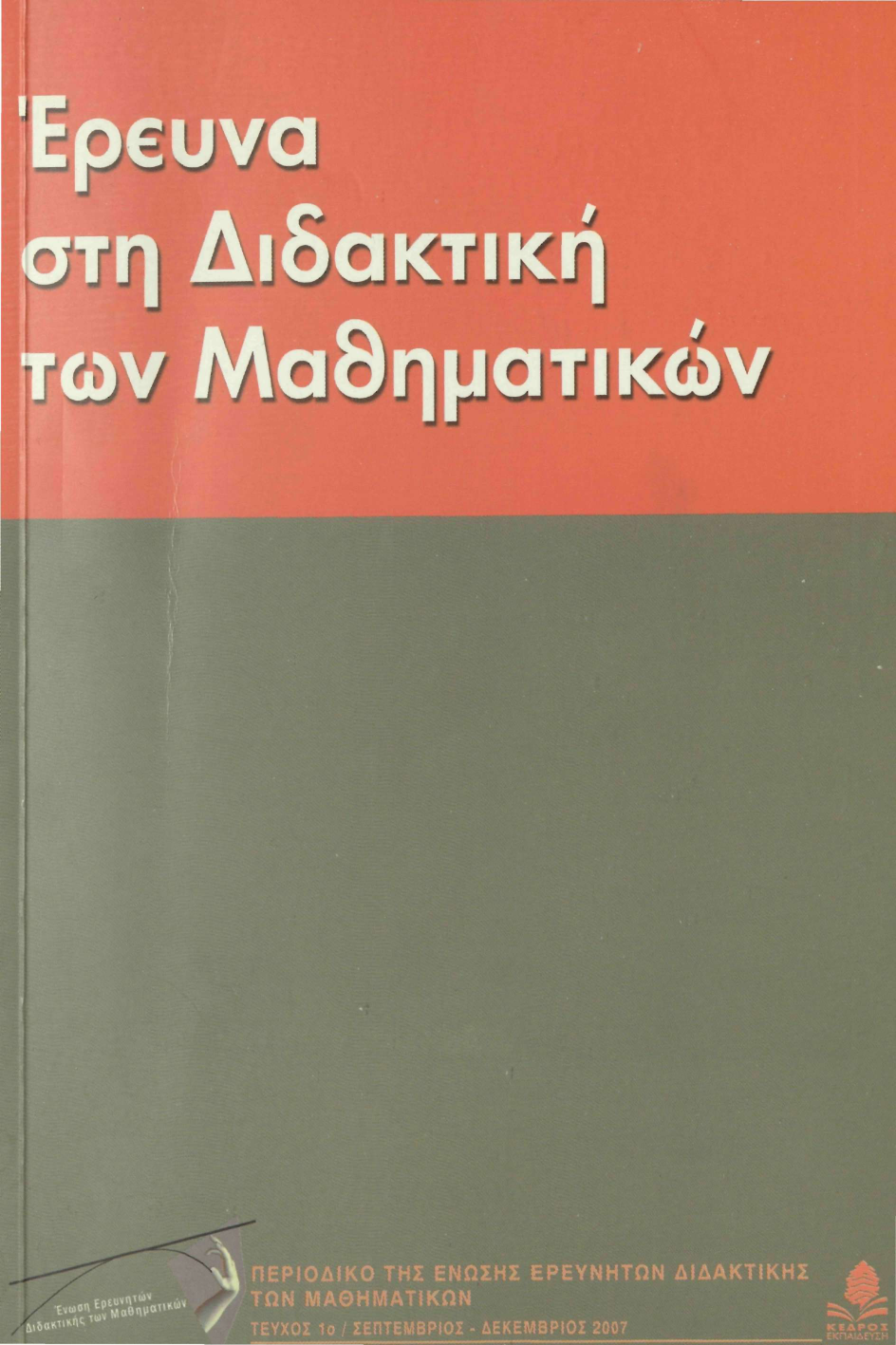Difficulties of secondary students in solving inequations of 1st degree

Abstract
The purpose of the research is to investigate the knowledge of High School students in dealing with and resolving inequations with one unknown. In particular, we explore students' ability to "translate" from the verbal formulation into mathematical language and vice versa, as well as their functional ability to use the algebraic operations required to resolve inequations. A questionaire with inequations were provided to 25 students. Quantitative and qualitative analysis of students' answers indicate their important diffiuclties in handling the above mathematical objects.
Article Details
- How to Cite
-
Παπακωστόπουλος (Spyros Papakostopoulos) Σ., & Ζαχάρος (Kostas Zacharos) Κ. (2017). Difficulties of secondary students in solving inequations of 1st degree. Research in Mathematics Education, (5), 11–39. https://doi.org/10.12681/enedim.15027
- Section
- Articles

This work is licensed under a Creative Commons Attribution 4.0 International License.
Authors who publish with this journal agree to the following terms:
Authors retain copyright and grant the journal right of first publication with the work simultaneously licensed under a Creative Commons Attribution licence that allows others to share the work with an acknowledgement of the work's authorship and initial publication in this journal.
Authors are able to enter into separate, additional contractual arrangements for the non-exclusive distribution of the journal's published version of the work (e.g. post it to an institutional repository or publish it in a book), with an acknowledgement of its initial publication in this journal.
Authors are permitted and encouraged to post their work online (preferably in institutional repositories or on their website) prior to and during the submission process, as it can lead to productive exchanges, as well as earlier and greater citation of published work (See The Effect of Open Access).



